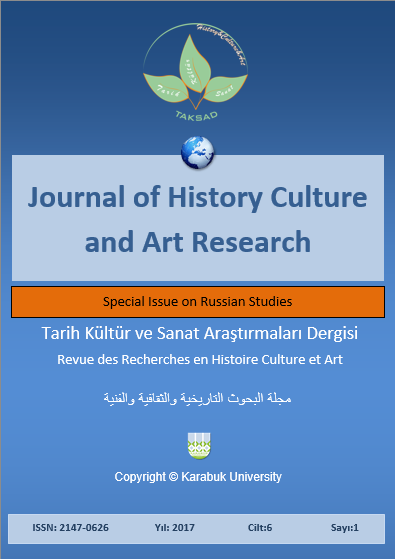From One Ontology to the Set of All Possible
DOI:
https://doi.org/10.7596/taksad.v6i5.1302Anahtar Kelimeler:
Ontology- Geometry- Existence- Euclidean geometry- Non-Euclidean geometry- Mathematics- Space- Time.Özet
In the framework of hundreds of ontologies that already exist today, it would seem impossible to build other buildings of theories about the world. Any "new" thought will only be an element, a brick in defense and strengthening of a separate theory, or a stumbling block to the new great minds of mankind leading to new reflections and clarifications. Everyone who dared to reconsider the very foundations of the whole being of mankind was a kind of revolutionary and had the opportunity to be remembered as a great scientist, philosopher, artist, writer, thinker. Establishing a completely new and untested before the foundations of being, a person is able to discover unprecedented worlds, the worlds that had not previously imagined by anyone. This is what happened with the discovery of non-Euclidean geometry. The study is about the new ontologies that saw the light after this event, the new conditions for the existence of man, his renewed place in a very complicated world, and the consequences of such drastic changes.
Referanslar
Bell, E. T. (1945). The development of mathematics. McGraw-Hill Book Company.
Bell, E. T. (1986). Men of Mathematics. Touchstone Book.
Dostoyevsky, F. (2009). The Brothers Karamazov. Translated from the Russian by Constance Garnett. New York: The Lowell Press.
Euclid’s elements of geometry (2008). Edited, and provided with a modern English translation, by Richard Fitzpatrick.
Kant, I. (1998). Critique of Pure Reason. Cambridge University Press.
Kline, M. (1983). Mathematics: The Loss of Certainty. Oxford University Press.
Livanova, А. (1969). Three Fates. Comprehension of the world. Series: Life of great ideas. Issue 2. Moscow: Knowledge.
Lobachevsky, N. I. (1823). The origins and propagation of sound in the air // Kazan Vestnik. Part VII, Book I., pp. 49-60. URL: https://www.litprichal.ru/work/279494/
Lobachevsky, N. I. (1948). Algebra. Foreword // Lobachevsky N.I. complete set of works. Ed. Kagan. Vol. 4. Works on algebra. Moscow: State Publishing House of Technical and Theoretical Literature.
Mueller, I. (2006). Philosophy of Mathematics and Deductive Structure in Euclid's Elements. Dover Publications.
Perminov, V. Y. (2001). Philosophy and foundations of mathematics. Moscow: Progress-Traditsiya.
İndir
Yayınlanmış
Nasıl Atıf Yapılır
Sayı
Bölüm
Lisans
Tarih Kültür ve Sanat Araştırmaları Dergisi'nde yayımlanan tüm çalışmalar Creative Commons 4.0 CC-BY lisansı ile lisanslanmıştır.
Bunları yapmakta özgürsünüz:
- Bu eseri her boyut ve formatta paylaşabilir — kopyalayabilir ve çoğaltabilirsiniz.
- Materyalden Adapte et — karıştır, aktar ve eserin üzerine inşa et
- her türlü amaç için, ticari amaç da dahil
Alttaki şartlar altında:
Atıf — uygun bilgiyi, lisansa linki, and ve değişiklik yapıldıysa değişiklik bilgisinivermelisiniz. Sizi veya kullanımınızı lisansörün onayladığı bilgisini içermemek kaydıyla, size uygun şekilde bu işlemleri gerçekleştirebilirsiniz.
AynıLisanslaPaylaş — Eğer materyali karıştırdınızsa, aktardınızsa ya da materyalin üzerine çalıştınızsa, ancak aynı lisans ile dağıtabilirsiniz.
- Ek sınırlamalar yoktur — Lisansın izin verdiği hakları başkaları üzerinde kanunlarla ya da teknolojiyikullanarak sınırlayamazsınız.







